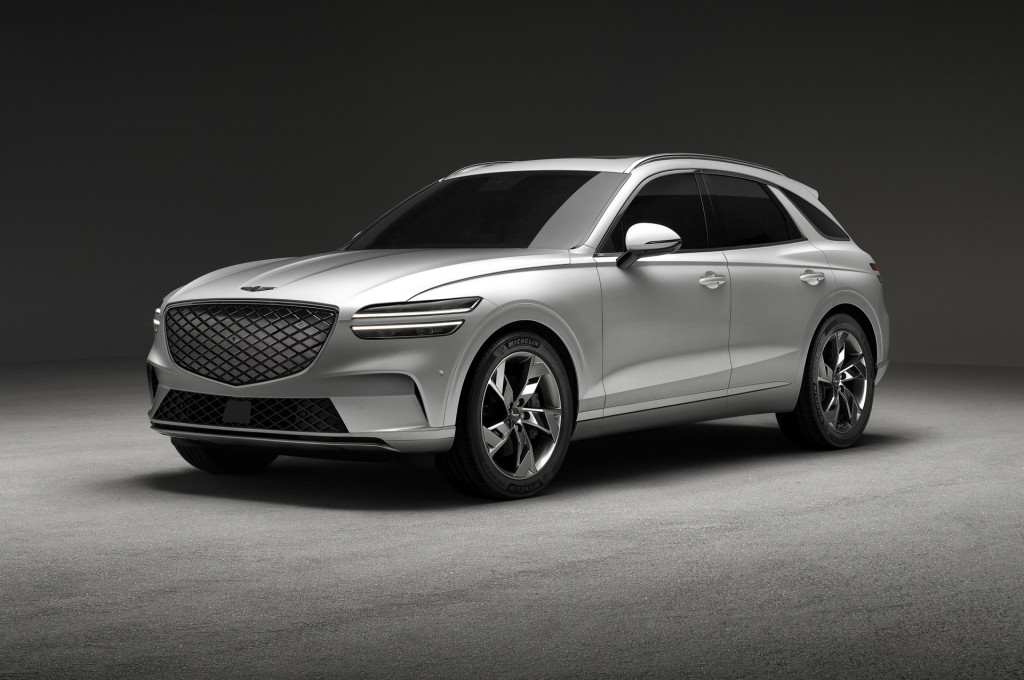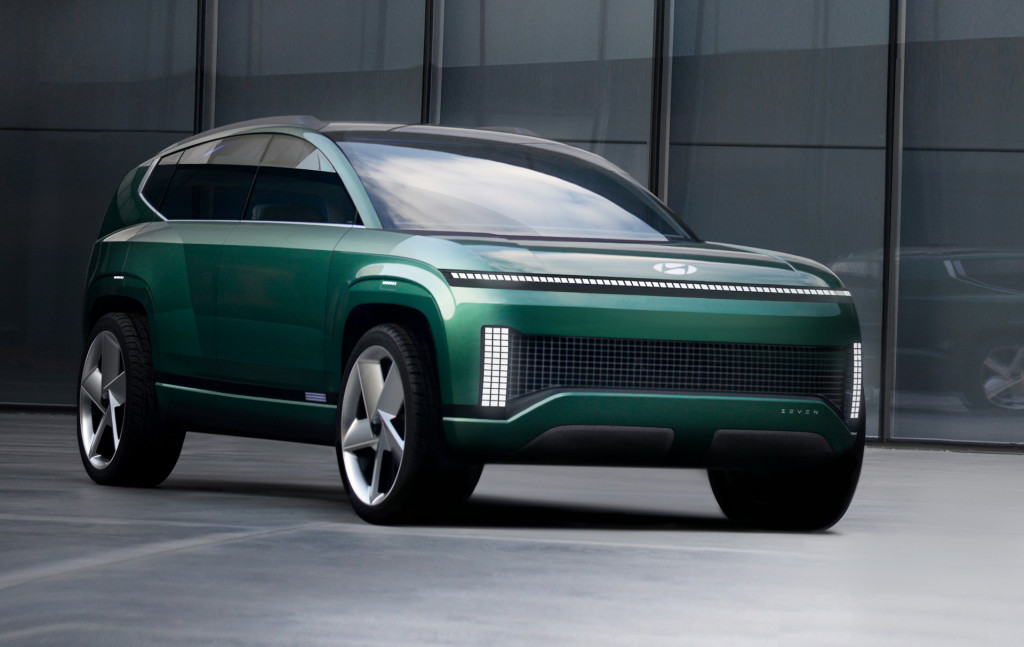Hyundai aims to capture 7% of the global EV market by 2030, but expects United States EVs sales to be much higher by then, according to a strategic overview released by the automaker Wednesday.
That translates to an annual global EV sales target of 1.87 million units for the main Hyundai brand and the Genesis luxury brand by 2030, the automaker said. That's up from a previously-discussed goal of 560,000 units by 2025.
Hyundai plans to introduce 11 electric models for its main brand and six for Genesis by 2030. Hyundai-owned Kia also plans to launch 11 EVs by 2026, including seven based on dedicated platforms.

Genesis Electrified GV70
The Hyundai models will include three sedans, six SUVs, one light commercial vehicle, and one "new type of model," the automaker said. Several will be part of the Ioniq sub-brand, the rollout of which started with the Ioniq 5 in late 2021. The Ioniq 6 sedan will launch later this year, followed by the Ioniq 7 SUV in 2024.
Genesis has two sedans and two SUVs planned, including the Electrified GV70 based on an existing gasoline model, and the GV60 dedicated EV. Genesis previously confirmed eight EV models by 2030, with a shift for the brand to all-EV. Starting in 2025, all newly launched Genesis models will be electrified, Hyundai said, although that could mean hybrids as well as EVs.
Hyundai is also developing a new EV platform as a successor to the E-GMP platform that underpins the Ioniq 5, Genesis GV60, and Kia EV6. Called Integrated Modular Architecture (IMA), it will support standardized battery packs and motors to lower costs, Hyundai said.

Hyundai Seven concept
The automaker also said it will add over-the-air (OTA) update capability to new models launched starting at the end of 2022, expanding to all Hyundai models by 2025.
Achieving these EV goals will involve expanding the manufacturing base, Hyundai noted. The automaker previously said it would build EVs in the U.S. starting in 2022, and indicated it will make deals to source batteries here as well. Hyundai expects half of its U.S. sales to be electric by 2030.
Hyundai has also said that it expects price parity of hydrogen fuel-cell tech with battery-electric vehicles by 2030. In 2021, Hyundai unveiled an expansive vision to apply fuel cells to all of its commercial vehicles by 2028, and has discussed using fuel cells for a wider variety of applications, including home power.












